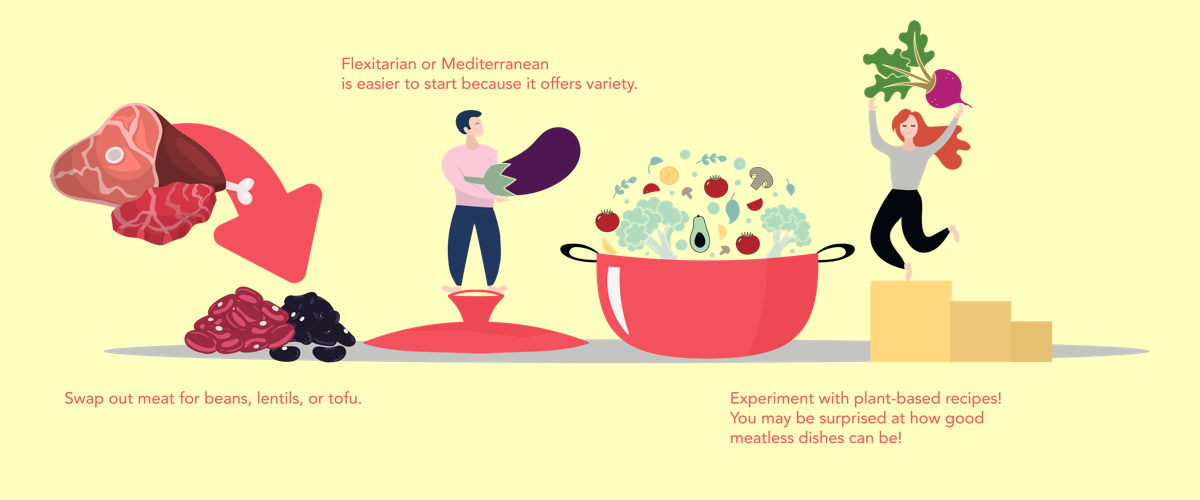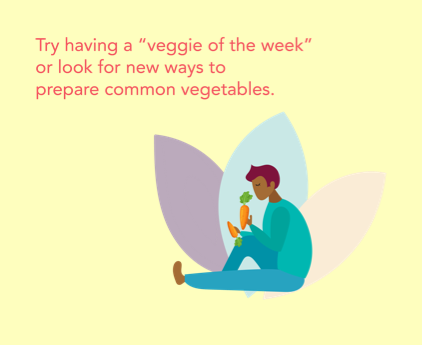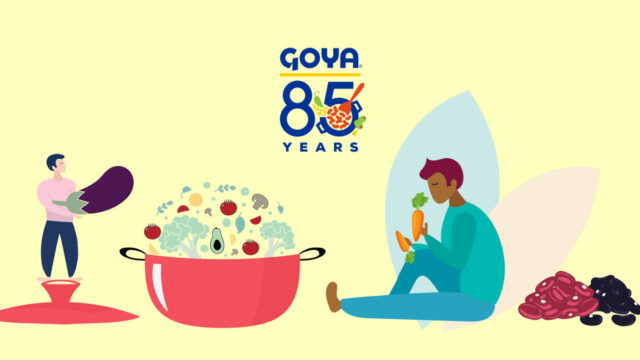NUTRITION
Plant-Based Diets & Nutrition
Are you thinking of starting a plant-based diet or wondering what it is? There is actually no formal definition of a plant-based diet. It is best described as a spectrum of dietary patterns that predominantly consists of whole grains, vegetables, fruits, legumes, nuts, and seeds. In other words, mostly plant foods. Across the spectrum, there are four main patterns. However, there can be multiple variations to each, which is acceptable as long as you are tailoring these plant-based diets to you and your lifestyle.
- Vegan – excludes all animal sources and products, even honey. Veganism can be more than a diet; it’s a lifestyle that can extend to clothing, beauty, and cleaning products.
- Vegetarian – excludes animal meats, but includes some animal products like milk, cheese, yogurt, and/or eggs.
- Pescatarian – usually is a vegan or a vegetarian diet that includes seafood.
- Semi-vegetarian aka Flexitarian or Mediterranean diet pattern – refers to having the flexibility to alternate between different plant-based eating patterns, including animal sources and products but in smaller amounts and/or less frequently compared to plant sources.

Studies have shown there are many health benefits to following a plant-based diet. Vegetarians and vegans are at reduced risk of certain health conditions, including heart disease, type 2 diabetes, hypertension, certain types of cancer, and obesity.
These benefits are believed to be due to the low intake of saturated fat found in animal sources, and the high intake of vegetables, fruits, whole grains, legumes, soy products, nuts, and seeds which are all rich in fiber and phytochemicals. These characteristics of vegetarian and vegan diets contribute to lowering total and LDL cholesterol levels and improving blood glucose control.
The good news is you do not have to follow a completely vegan or vegetarian diet to experience these health benefits. As you reduce your intake of animal foods while increasing your intake of plant-based foods, you are taking steps to improve your health. For example, swapping your chicken for tofu or reducing your eight-ounce skirt steak to a four-ounce serving and adding half a cup of beans. Here are some other tips to help you get started on a plant-based diet:

- You don’t have to label yourself immediately. Starting a plant-based diet doesn’t have to be an ‘all or nothing’ approach.
- Start with one meal per week or one day per week of following a plant-based pattern.
- Think of the animal proteins as the side dish instead of a main course while highlighting the grains and vegetables.
- Aim to add one more serving of veggies to meals.
- Try a new veggie-of-the-week (or month!) or look for new ways to prepare common vegetables.
- Experiment with plant-based recipes at home or try them at restaurants — you may be surprised to like beans, tofu, or veggies prepared in ways you haven’t tried before!
As you transition to a plant-based diet and reduce animal sources, keep in mind that you are also limiting sources of certain nutrients. It is important to ensure that these nutrients are replaced through plant-based sources. In some cases, dietary supplements may have to be considered, especially for long-term vegan diets.
- Identify a plant source of protein in your meals: tofu, tempeh, beans, lentils, seeds, and nuts.
- Combine a source of iron (beans and lentils) with vitamin C (orange, red bell pepper, etc.).
- Choose fortified milk alternatives that have around 20% of the daily value of calcium and vitamin D.
- Vitamin B12 is not naturally found in plant foods, but it is high in fish, meat, poultry, eggs, and milk. Therefore, vegans will likely need to take a dietary supplement.
Lastly, it is possible to have an unhealthy plant-based diet. After all, cookies, potato chips, and many other processed foods can be considered vegan or vegetarian yet have high amounts of added sugar, sodium, or saturated fats. Aim to follow a healthful plant-based diet that includes more vegetables, fruits, whole grains, beans, nuts, and seeds, instead of some animal and processed foods.
By: Carla Dueñas, RD, LD/N, CDCES and Lucette Talamas, MS, RD, LD/N
